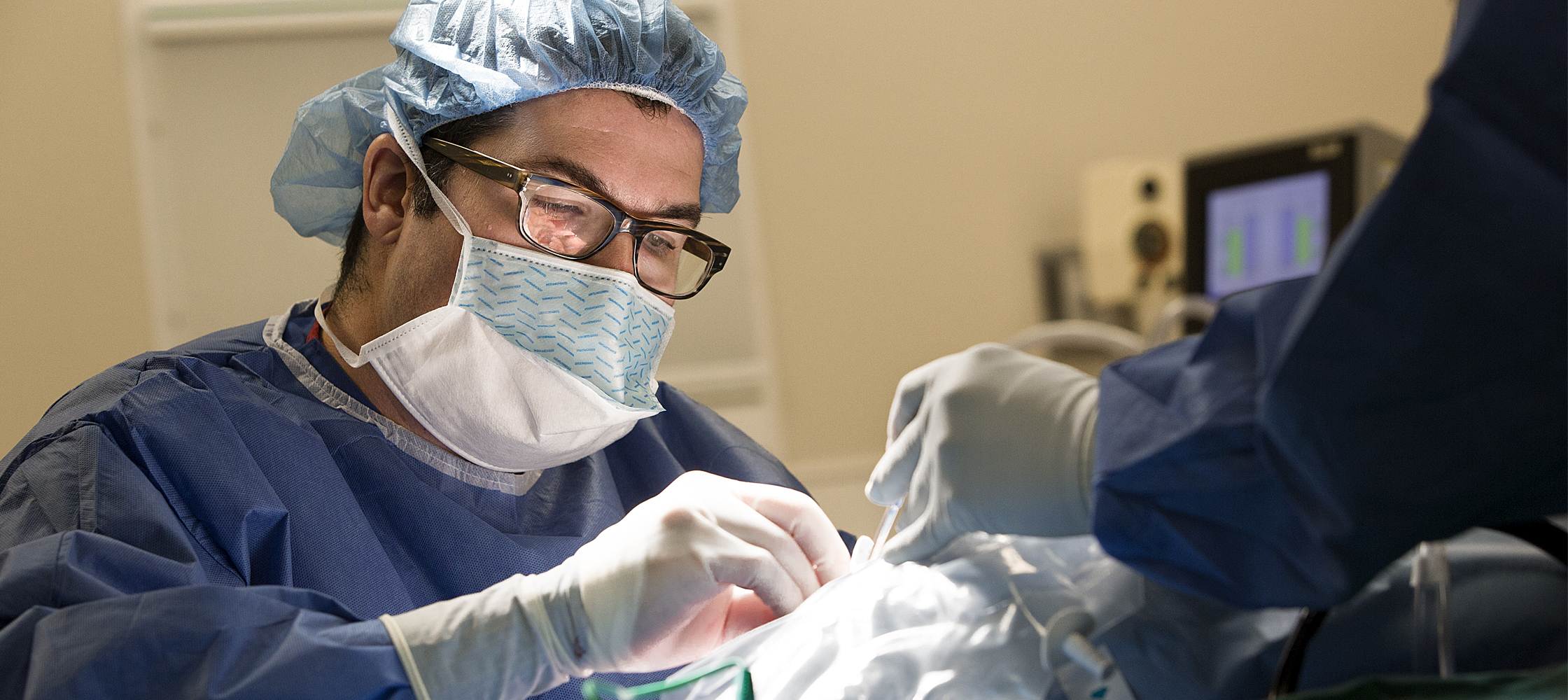 From the DukeHealth.org archives. Content may be out of date.
From the DukeHealth.org archives. Content may be out of date.
Acoustic Neuroma Technique Preserves, Restores Hearing

Duke surgeons are using cochlear implants to prevent hearing loss or to restore hearing in people who lost their hearing when benign tumors pressed on nerves in their brain. “This new opportunity is remarkable,” said otolaryngologist David Kaylie, MD. “We’re helping people hear again who have been told they would be deaf for life.”
Acoustic Neuromas Affect Vital Nerves
Hearing loss is a common symptom when a non-cancerous tumor known as an acoustic neuroma (also called a vestibular schwannoma) grows and presses on the nerve that leads from your inner ear to your brain. In addition to hearing loss, acoustic neuromas can cause balance problems, and facial numbness, weakness, and facial paralysis.
Treatment for acoustic neuromas varies from observation to radiation therapy. Surgery may be necessary if the tumors are large, growing fast, or pressing on vital areas of the brain. If surgery is required, a team of specialists, including otolaryngologists and neurosurgeons, work together to minimize nerve damage and associated risks.
“The neurosurgeon’s job is to remove the tumor,” explained David Kaylie, MD, co-director of Duke’s skull base tumor center. “My job is to preserve hearing, balance, and facial nerve function, and help the neurosurgeon reach the tumor.”

Duke is one of a handful of centers in the U.S. where surgeons have successfully performed this novel procedure, and one of the only sites where surgeons remove the tumor and place the cochlear implant in one surgery.
Using Cochlear Implants to Preserve, Restore Hearing
In the past, surgical removal of the tumor also required removal of the cochlear nerve, which controls hearing. That left doctors limited in their ability to provide meaningful hearing improvement. Recently, however, surgeons started using cochlear implants after several studies showed they could restore hearing in some acoustic neuroma patients without removing the tumors.
Now surgeons are working around the acoustic neuromas -- sometimes leaving them, or a portion of them, and the cochlear nerve intact -- and inserting a cochlear implant to preserve or restore hearing. Duke is one of a handful of centers in the U.S. where surgeons have successfully performed this novel procedure, and one of the only sites where surgeons remove the tumor and place the cochlear implant in one surgery.
“It used to be thought that if you removed the tumor, you could not put in a cochlear implant,” Kaylie said. “Now we can remove part of the tumor, which relieves brain pressure, and provides more room for the compressed brain to re-expand. We can put in cochlear implants in people who still have tumors in place, and restore hearing to a deaf ear. This is a new use for cochlear implants. We’ve shown that it can work. The cochlear implant can restore hearing in people who haven’t heard in years, or prevent them from ever becoming deaf.”
Duke surgeons are also placing cochlear implants in people who lost hearing in one ear after radiation therapy for acoustic neuromas. This can restore stereo hearing, which helps localize sounds and make it easier to hear in noisy environments.

Hope Comes Alive
While cochlear implants are not an option for all people with acoustic neuroma -- much depends on the size and location of the tumor -- they are giving new hope to some people who had no hope before. “Just being able to tell our patients and seeing their hope come alive has been very rewarding,” Kaylie said. “This new opportunity is remarkable.”
When the cochlear implant is turned on about three to four weeks following surgery, Kaylie said, “People’s reactions are incredible. It’s so gratifying to know that I’m helping to prevent them from losing their hearing.”




